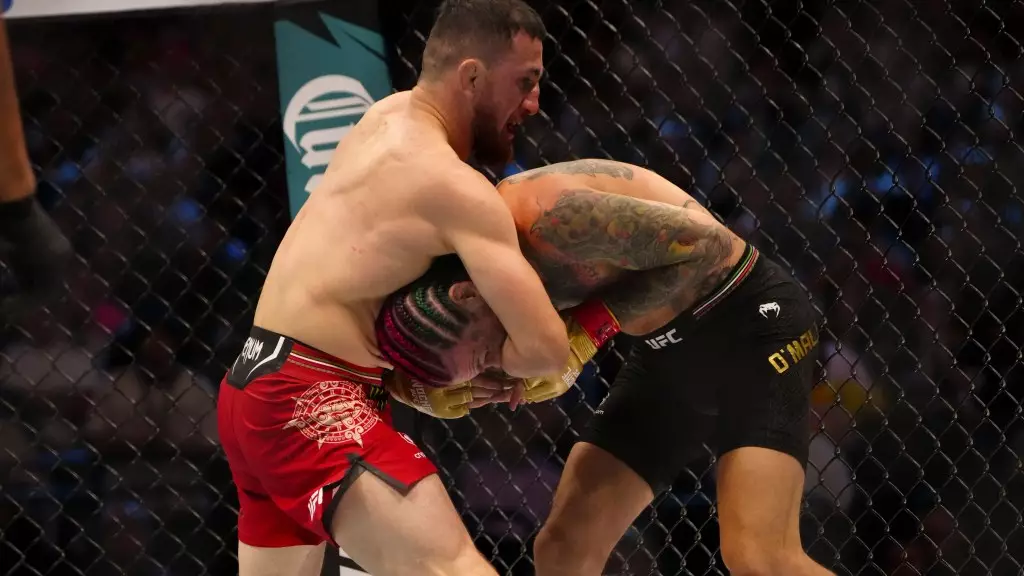Merab Dvalishvili’s recent victory over Sean O’Malley at UFC 306 has marked a significant moment in the bantamweight division. With a decisive decision win in Las Vegas, Dvalishvili not only claimed the title but also solidified his reputation as a formidable force in the octagon. Dvalishvili’s performance demonstrates his relentless fighting style and superior conditioning, setting him apart from his opponents. Accumulating an impressive record of 18 wins against only four losses, his approach to fighting is a blend of relentless aggression and tactical wrestling that many fighters in the division find hard to cope with.
On the other side lies Umar Nurmagomedov, who boasts an undefeated streak of 18 wins. His patient and strategic approach in combat is notable, particularly highlighted during his main event against Cory Sandhagen, which was perceived as a title eliminator. While Nurmagomedov’s skills are undeniable—ranging from his long reach to his striking capability—there exists a palpable tension regarding his work ethic when contrasting him with Dvalishvili. Many believe that while Nurmagomedov exhibits technical prowess, he may lack the raw intensity and pressure that Dvalishvili effortlessly brings to his fights. This divergence in fighting philosophy could play a critical role if the two eventually meet.
Demetrious Johnson’s insights into this potential clash offer a deep examination of the factors that may determine the outcome. Johnson argues that Dvalishvili’s unmatched gas tank could be the determining advantage in a matchup against Nurmagomedov. His ability to sustain high-output fighting styles for extended periods has been a defining characteristic, allowing him to continually press his opponents in ways that exhaust their reserves. Johnson’s comments highlight the contrasting styles: Dvalishvili’s relentless forward movement might overwhelm Nurmagomedov’s more calculated and strategic approach, leading to a fight dynamic that keeps Nurmagomedov on the defensive throughout the contest.
For Nurmagomedov to successfully secure a title, he must embrace a strategy that mitigates Dvalishvili’s pressures. This could entail a more aggressive approach than his usual reserved style, capitalizing on his wrestling skills to neutralize Dvalishvili’s striking. The challenge lies in maintaining composure while countering Dvalishvili’s frenetic pace—a true test of both mental and physical fortitude. Additionally, it could prove beneficial for Nurmagomedov to leverage his fluid movement and long reach to dictate the distance and avoid being cornered, a tactic essential in managing Dvalishvili’s high-volume output.
As the bantamweight division braces for what could be a thrilling showdown between Dvalishvili and Nurmagomedov, the implications extend beyond just the title; they echo through the ranks of the UFC. The contrast in styles promises an enthralling blend of aggression and strategy. Fans will eagerly await this encounter, which may very well redefine their perceptions of both fighters and the division itself. With every fight, the narratives evolve, and this impending clash could set the stage for the future face of the bantamweight title. The ring is not just a battleground but a narrative canvas where champions craft their legacies, and both Dvalishvili and Nurmagomedov are poised to leave an indelible mark.

